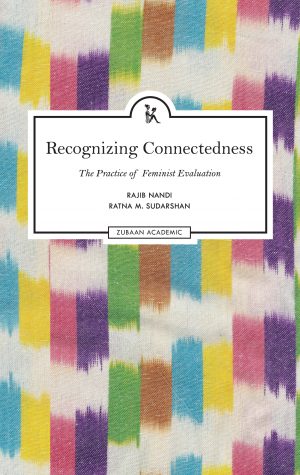Recognizing Connectedness Practice Feminist by Ratna Sudarshan (1 results)
FeedbackSearch filters
Product Type
- All Product Types
- Books (1)
- Magazines & Periodicals (No further results match this refinement)
- Comics (No further results match this refinement)
- Sheet Music (No further results match this refinement)
- Art, Prints & Posters (No further results match this refinement)
- Photographs (No further results match this refinement)
- Maps (No further results match this refinement)
- Manuscripts & Paper Collectibles (No further results match this refinement)
Condition
- All Conditions
- New (1)
- Used (No further results match this refinement)
Binding
- All Bindings
- Hardcover (No further results match this refinement)
- Softcover (1)
Collectible Attributes
- First Edition (No further results match this refinement)
- Signed (No further results match this refinement)
- Dust Jacket (No further results match this refinement)
- Seller-Supplied Images (1)
- Not Print on Demand (1)
Free Shipping
- Free Shipping to U.S.A. (No further results match this refinement)
Seller Rating
-
Recognizing Connectedness: The Practice of Feminist Evaluation
Published by Zubaan Books, 2022
ISBN 10: 9390514398 ISBN 13: 9789390514397
Seller: Vedams eBooks (P) Ltd, New Delhi, India
Soft cover. Condition: New. The concept of programme evaluation, now more than half a century old, refers to the practice of professional assessment of a programme that is informed by evidence and guided by evaluative thinking to arrive at a judgement about value, merit, worth, significance and utility. Good programme evaluations in general adopt an inclusive development approach rather than a transformative approach. Feminist evaluations, by contrast, identify a wide range of stakeholders and engage the larger community in order to identify, and encourage the programme to challenge social norms that perpetuate inequalities between men and women and other genders. The essays in this volume, in different ways, suggest that gender transformative change cannot happen through the actions or exercise of agency by one group alone whether it is girls, or boys, or women. Instead the authors draw out the importance of 'connectedness' between groups of people and between individual agents and the larger structures within which they are located. In doing so, they apply a feminist lens to a range of programme evaluations and policies at both the national level and at the level of specific states (Uttarakhand, Delhi, Bihar, Haryana, Rajasthan and Tamil Nadu).


